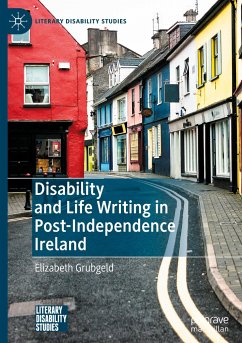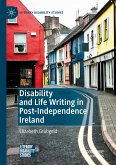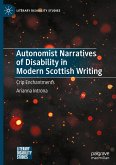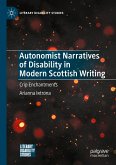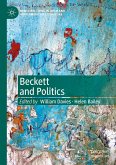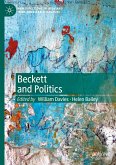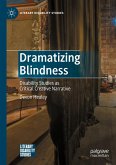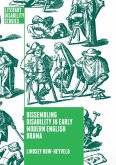This book is the first to examine life writing and disability in the context of Irish culture. It will be valuable to readers interested in Disability Studies, Irish Studies, autobiography and life writing, working-class literature, popular culture, and new media. Ranging from Sean O'Casey's 1939 childhood memoir to contemporary blogging practices, Disability and Life Writing in Post-Independence Ireland analyzes a century of autobiographical writing about the social, psychological, economic, and physical dimensions of living with disabilities. The book examines memoirs of sight loss with reference to class and labor conditions, the harrowing stories of residential institutions and the advent of the independent living movement, and the autobiographical fiction of such acknowledged literary figures as Christy Brown and playwright Stewart Parker. Extending the discussion to the contemporary moment, popular genres such as the sports and celebrity autobiography are explored, as well as such newer phenomena as blogging and self-referential performance art.
"As a lifewriting scholar, I found the history of disability activism fascinating. Particularly pertinent was the discussion of how having a different body could affect the style of literary engagement-this is especially so in the case of life writing, surely the most embodied form of writing." (Muireann Leech, Biography, Vol. 44 (4), 2021)
"Disability and Life Writing in Post-Independence Ireland is an outstanding analysis that seamlessly connects Irish history with the disability experience, just as disability is interwoven with all history throughout time. The recurring theme of class structure, encased in disability awareness, treatment, and access is beautifully intertwined so the book often reads like a history of Irish class system as told through the eyes of its disabled citizens." (Kathleen McGoldrick, Disability Studies Quarterly, dsq-sds.org, Vol. 41 (1), 2021)
"Disability and Life Writing in Post-Independence Ireland is an outstanding analysis that seamlessly connects Irish history with the disability experience, just as disability is interwoven with all history throughout time. The recurring theme of class structure, encased in disability awareness, treatment, and access is beautifully intertwined so the book often reads like a history of Irish class system as told through the eyes of its disabled citizens." (Kathleen McGoldrick, Disability Studies Quarterly, dsq-sds.org, Vol. 41 (1), 2021)

